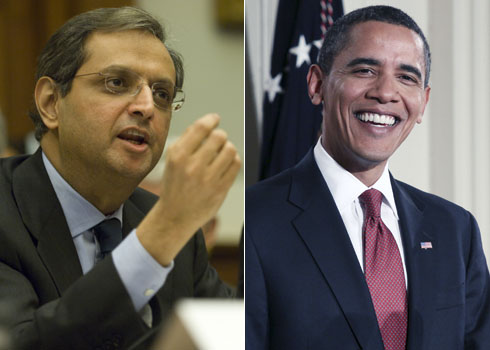Did the Obama Administration just deliver a $38 billion stealth bailout to Citigroup?
According to several outside experts the answer is yes, but the Treasury is maintaining an IRS ruling that granted Citi a $38 billion tax break was routine and proper. The Washington Post first reported the news of the IRS ruling in a front-page story today.
The IRS decision came as part of a deal for Citi to pay back $20 billion, which was announced earlier this week amid mutual back-patting. One benefit for Citi is being freed from salary restrictions.
But with the IRS notice, “all Citi is doing is saying to the government, we’ll give you $20 billion if you give us the $38 billion tax dodge,” Barry Ritholtz, the chief market strategist for Fusion IQ, tells TPMmuckraker. “It’s a giant fraud.”
Here’s the gist of the tax maneuver: Companies are allowed to offset tax payments with previous losses, but the law bars this practice in the case of transfers of ownership. That’s so a money-losing company cannot be bought by a “predator company” for the sole purpose of gaining the tax advantage of the losses of the “prey company.” Citi’s deal with Treasury involves transactions, including the government’s selling of its 34 percent stake in the company, that amount to an ownership change. The IRS ruling allows Citi to offset past losses despite the ownership change.
$38 billion is the amount Citi claims in past losses, which means that under the IRS ruling Citi can “avoid taxes on its next $38 billion in profits,” the Post notes.
Ritholtz says the deal is about Citi — “the least healthy of the major banks” — not wanting to be the odd man out, as others pay back bailout money.
Neither the White House, which declined our request for comment, nor the Treasury has mounted a public defense of the IRS decision, but ABC lays out the full response of anonymous Treasury officials here. The basic argument is that the TARP presents a unique set of circumstances that are not a real transfer of ownership in the original sense of the tax law that is being exempted.
But one tax accounting expert told the Post:
“The government is consciously forfeiting future tax revenues. It’s another form of assistance, maybe not as obvious as direct assistance but certainly another form,” said Robert Willens, an expert on tax accounting who runs a firm of the same name. “I’ve been doing taxes for almost 40 years, and I’ve never seen anything like this, where the IRS and Treasury acted unilaterally on so many fronts.”
The decision on the IRS ruling, which involved senior Treasury officials, has been presented by Treasury as a fait accompli, essentially the only possible interpretation of an existing rule.
But the New York Times reported that federal officials and Citi “had discussed the tax issues since late last summer as they worked through potential hurdles to the bank’s payback plans.” Doesn’t exactly sound like a routine ruling.
Treasury spokesperson Nayyera Haq tells us that the rule “was never intended to address the unprecedented situation where the government owned shares in banks – which is why additional guidance was needed to ensure an orderly TARP exit.”
Edward Harrison, finance specialist at the economic consultancy Global Macro Advisors, delves into the argument here, concluding that while the move is not unprecedented, it very much is a handout of taxpayer money.
Harrison tells TPMmuckraker: “I look it as a chutzpah move to get in there and give some freebies to Citigroup so they don’t have to raise more capital.”
There’s also the question of whether the IRS has the authority to make a decision with such far-ranging effects — one that applies to companies other than Citi in which the government has ownership stakes.
Says Ritholz: “What they’re doing looks awfully a lot like legislation and much less like administrative decision making.”






